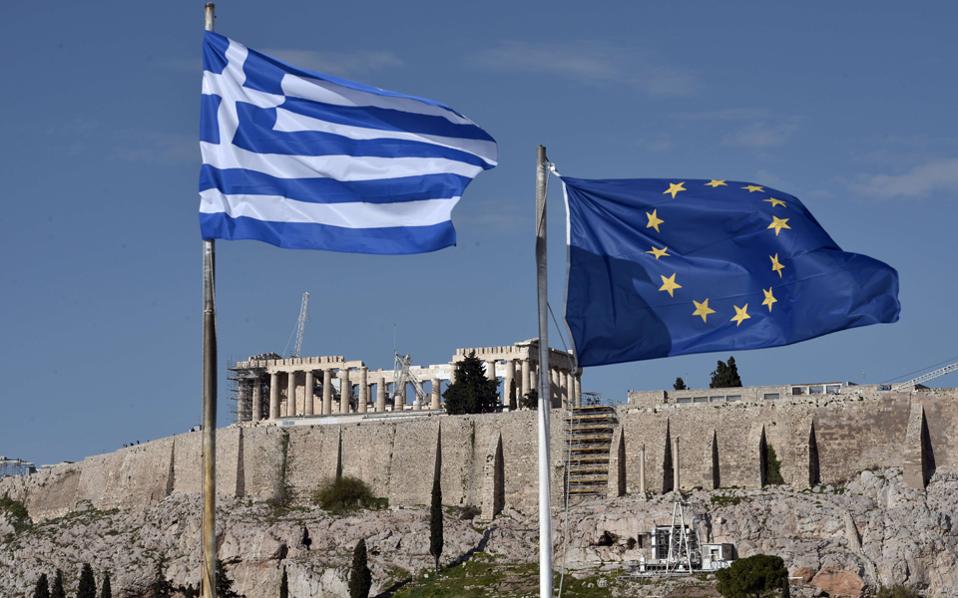Angry EU leaders lash out at Greece, eyeing endgame

Suicide, blackmail and lies – EU leaders have accused Greece of a litany of sins since months of fruitless talks on a debt deal hit the wall, often in surprisingly undiplomatic language.
While this criticism reflects frustration with the negotiating tactics of Greek Prime Minister Alexis Tsipras and his radical leftist SYRIZA government, it may also be part of a strategy to manage public opinion before the endgame of the crisis, experts say.
Outspoken European Commission head Jean-Claude Juncker is the most senior figure to lay his emotions bare. In a highly personal press conference on Monday, he said he felt “betrayed” and “deeply distressed” by Athens’s “gamesmanship.”
The tipping point for former Luxembourg premier Juncker, Tsipras's strongest EU supporter in five months of talks, seems to have come when, according to the EU, Greece walked away on the verge of a deal late Friday.
Tsipras then called a referendum for Sunday urging Greeks to vote ‘No’ on the deal's terms, a move that EU leaders have painted as a vote on Greece's future in Europe.
In previous weeks Juncker, 60, could often be seen greeting 40-year-old Tsipras with hugs and kisses during the Greek premier's visits to Brussels, but that jovial mood has disappeared.
“I will tell the Greeks, who I love deeply, that you shouldn’t choose suicide just because you are afraid of death,” Juncker said, urging them to vote ‘Yes’ in the referendum.
In a further roll of the dice, Greece Tuesday made a last-minute proposal for another bailout worth nearly 30 billion euros ($33 billion) to follow the two rescue programs worth 240 billion euros it has received since 2010.
But eurozone countries have declined to hold any more talks until the outcome of the referendum is clear.
Since Juncker's comments, other leaders have also spoken out.
International Monetary Fund chief Christine Lagarde urged “a bit more adulthood” from Greece, while European Parliament President Martin Schulz, a German, called Athens's tactics “really annoying” and ‘tiring.”
Chancellor Angela Merkel of Germany, Europe’s paymaster, has been more measured, but German Finance Minister Wolfgang Schaeuble accused Tsipras of making “untruthful claims that are not remotely related with reality.”
Latvian Finance Minister Janis Reirs went further still, telling local television Thursday: “We can now observe the policies of SYRIZA –intimidation, blackmail, lies.”
Greece's government has given as good as it gets, with Tsipras using his Twitter feed to accuse Europe's leaders of “financial asphyxiation,” “extortion” and “coercion.”
Greek Finance Minister Yanis Varoufakis even quoted one of television’s most famous political plotters, Frank Underwood from the “House of Cards” series, when asked by Bloomberg if Berlin was seeking a change of government.
“You may very well say that, I couldn't possibly comment,” he quipped.
Despite the acrimony, eurozone finance ministers have left the door open to further talks after the referendum. European leaders acknowledge that these would be much harder than before.
In the meantime, analysts say there may be some political strategy behind the angry rhetoric.
Pablo Calderon Martinez, a teaching fellow in Spanish and European Studies at King's College London, said European leaders may be trying to pre-empt the fallout from the final resolution of the crisis.
This is likely to prove costly for eurozone nations and split public opinion.
“Most of these issues have to do with the way leaders in Europe are reading their own public sentiment,” he said.
“Everybody seems to be trying to cover themselves from any kind of exposure…. We're already playing the blame game, basically.”
Bruno Amable, an economist at Paris's Pantheon-Sorbonne university, also suggested the negative comments were about sending a message to European voters more widely.
“They want to show the public that a government of the radical left leads to failure and that you must retain confidence in the usual parties,” he said.
Most eurozone countries currently have economically liberal governments.
[AFP]





